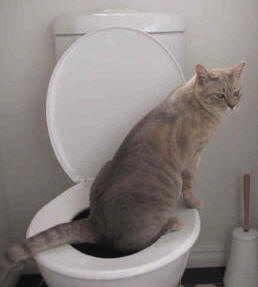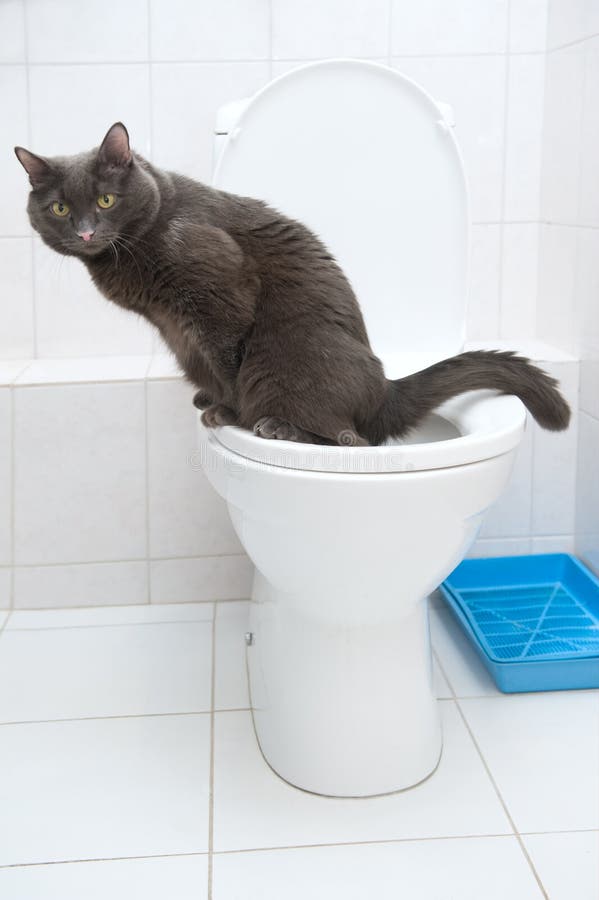Why Flushing Cat Poop Down Your Toilet Is Harmful - Tips for Correct Disposal
Why Flushing Cat Poop Down Your Toilet Is Harmful - Tips for Correct Disposal
Blog Article
Presented here in the next paragraph yow will discover a lot of worthwhile information concerning How to Dispose of Cat Poop and Litter Without Plastic Bags.

Intro
As pet cat owners, it's vital to bear in mind just how we take care of our feline good friends' waste. While it might seem hassle-free to purge pet cat poop down the commode, this technique can have harmful consequences for both the setting and human wellness.
Alternatives to Flushing
Thankfully, there are much safer and a lot more accountable ways to deal with pet cat poop. Consider the adhering to options:
1. Scoop and Dispose in Trash
One of the most typical approach of taking care of feline poop is to scoop it right into a biodegradable bag and toss it in the trash. Make sure to make use of a committed clutter inside story and take care of the waste promptly.
2. Use Biodegradable Litter
Select naturally degradable cat litter made from products such as corn or wheat. These litters are environmentally friendly and can be safely dealt with in the trash.
3. Bury in the Yard
If you have a yard, consider burying pet cat waste in a designated area far from vegetable yards and water resources. Be sure to dig deep enough to avoid contamination of groundwater.
4. Install a Pet Waste Disposal System
Purchase a family pet waste disposal system particularly designed for cat waste. These systems make use of enzymes to break down the waste, decreasing smell and environmental influence.
Wellness Risks
Along with environmental problems, purging cat waste can also present wellness dangers to people. Pet cat feces may have Toxoplasma gondii, a bloodsucker that can trigger toxoplasmosis-- a possibly serious health problem, specifically for expectant women and individuals with damaged immune systems.
Environmental Impact
Flushing feline poop presents hazardous microorganisms and bloodsuckers right into the water, posing a substantial danger to marine ecological communities. These contaminants can adversely affect marine life and compromise water quality.
Final thought
Accountable family pet ownership extends past giving food and sanctuary-- it additionally involves proper waste management. By avoiding flushing pet cat poop down the toilet and going with alternative disposal approaches, we can minimize our environmental impact and safeguard human health.
Why You Should Never Flush Cat Poop Down the Toilet
A rose by any other name might smell as sweet, but not all poop is created equal. Toilets, and our sewage systems, are designed for human excrement, not animal waste. It might seem like it couldn’t hurt to toss cat feces into the loo, but it’s not a good idea to flush cat poop in the toilet.
First and foremost, assuming your cat uses a litter box, any waste is going to have litter on it. And even the smallest amount of litter can wreak havoc on plumbing.
Over time, small amounts build up, filling up your septic system. Most litter sold today is clumping; it is made from a type of clay that hardens when it gets wet. Ever tried to scrape old clumps from the bottom of a litter box? You know just how cement-hard it can get!
Now imagine just a small clump of that stuck in your pipes. A simple de-clogger like Drano isn’t going to cut it. And that means it’s going to cost you big time to fix it.
Parasitic Contamination
Believe it or not, your healthy kitty may be harboring a nasty parasite. Only cats excrete Toxoplasma in their feces. Yet it rarely causes serious health issues in the cats that are infected. Most people will be fine too if infected. Only pregnant women and people with compromised immune systems are at risk. (If you’ve ever heard how women who are expecting are excused from litter cleaning duty, Toxoplasma is why.)
But other animals may have a problem if infected with the parasite. And human water treatment systems aren’t designed to handle it. As a result, the systems don’t remove the parasite before discharging wastewater into local waterways. Fish, shellfish, and other marine life — otters in particular — are susceptible to toxoplasma. If exposed, most will end up with brain damage and many will die.
Depending on the species of fish, they may end up on someone’s fish hook and, ultimately on someone’s dinner plate. If that someone has a chronic illness, they’re at risk.
Skip the Toilet Training
We know there are folks out there who like to toilet train their cats. And we give them props, it takes a lot of work. But thanks to the toxoplasma, it’s not a good idea.

I stumbled upon that content on How to Dispose of Cat Poop and Litter Without Plastic Bags while doing a search on the search engines. Liked our write-up? Please share it. Help somebody else find it. Thank you so much for going through it.
Call Today Report this page